Two straight conducting rails form a right angle where their ends are joined. A conducting bar in contact with the rails starts at the vertex at time t = 0 and moves with constant velocity v along them as shown in Fig. A magnetic field →B is directed into the page. the induced emf in the circuit at any time t is proportional to

t∘
t
Voltage of source will lead the current through
v2
The correct Answer is:B, D
Step by step video & image solution for Two straight conducting rails form a right angle where their ends are joined. A conducting bar in contact with the rails starts at the vertex at time t = 0 and moves with constant velocity v along them as shown in Fig. A magnetic field vec(B) is directed into the page. the induced emf in the circuit at any time t is proportional to by Physics experts to help you in doubts & scoring excellent marks in Class 12 exams.
Similar Questions
A conducting wire MN moves with velocity V_0 along +X-axis in a uniform magnetic field (¯¯¯B=−B0ˆk)as shown in the diagram then
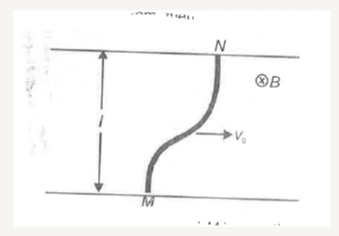 View Solution
View SolutionA conducting bar is slid at a constant velocity v along two conducting rods. The rods ar seprated by a distance l and connected across a resistor R. The entire apparatus is placed in an external magnetic field B directed into the page
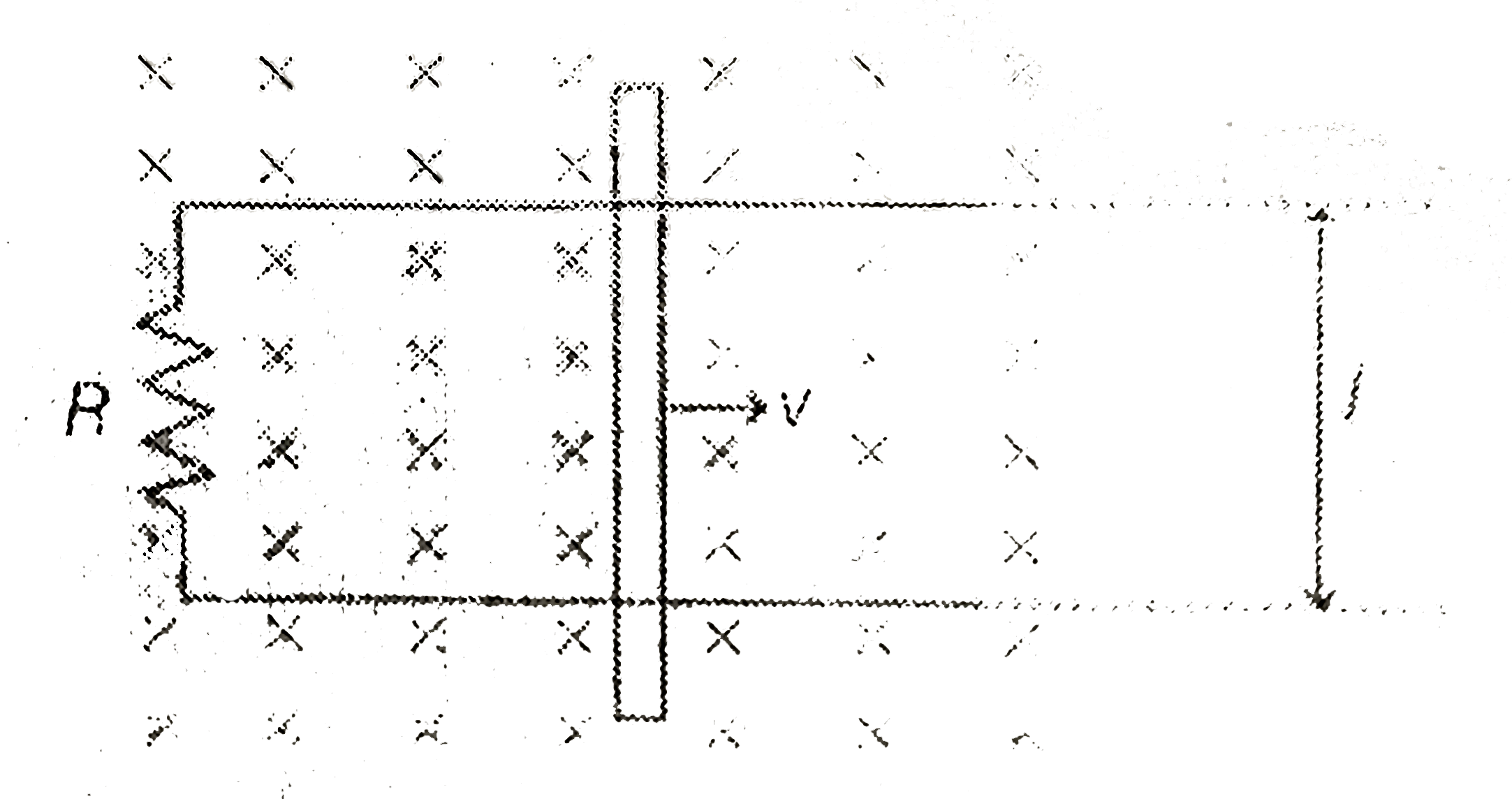
The induced current in the above circuit is:View SolutionTwo parallel long smooth conducting rails separated by a distance l are connected by a movable conducting connector of mass m. Terminals of the rails are connected by the resistor R and the capacitor C as shown in figure. A uniform magnetic field B perpendicular to the plane of the rail is switched on. The connector is dragged by a constant force F. Find the speed of the connector as a function of time if the force F is applied at t=0. Also find the terminal velocity of the connector.
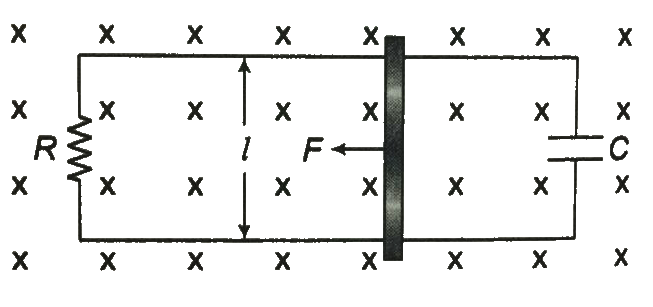 View Solution
View SolutionA rod of length 10cm made up of conducting and non-conducting material (shaded part is non-conducting). The rod is rotated with constant angular velocity 10rad/s about point O, in constant magnetic field of 2T as shown in the figure. The induced emf between the point A and B of rod will be:
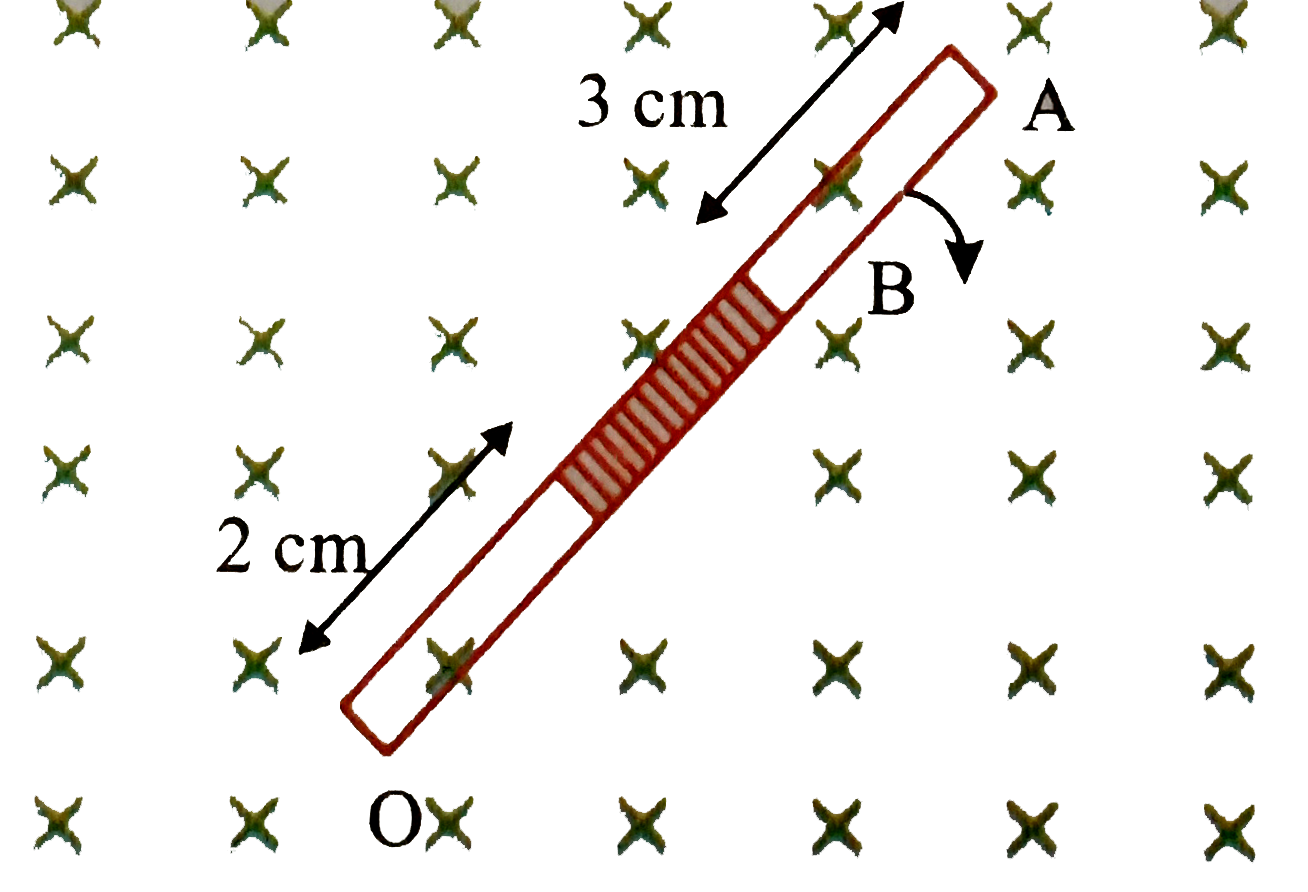 View Solution
View Solutionin fig. The four rods have λ resistance per unit length. The arrengement is kept in a magnetic field of constant magnitude B and directed perpendicular to the plane of the figure and directing in ward. Initially, the sides as shown form a square. Now each wire starts moving with constant velocity v toward the opposite wire.
Find as a function of time:
(a) induced emf in the circuit.
(b) induced current in the circuit with direction.
( c ) force required on each wire to keep its velocity consatnt.
(d) total power required to maintain constant velocity.
(e) thermal power developed in the circuit.
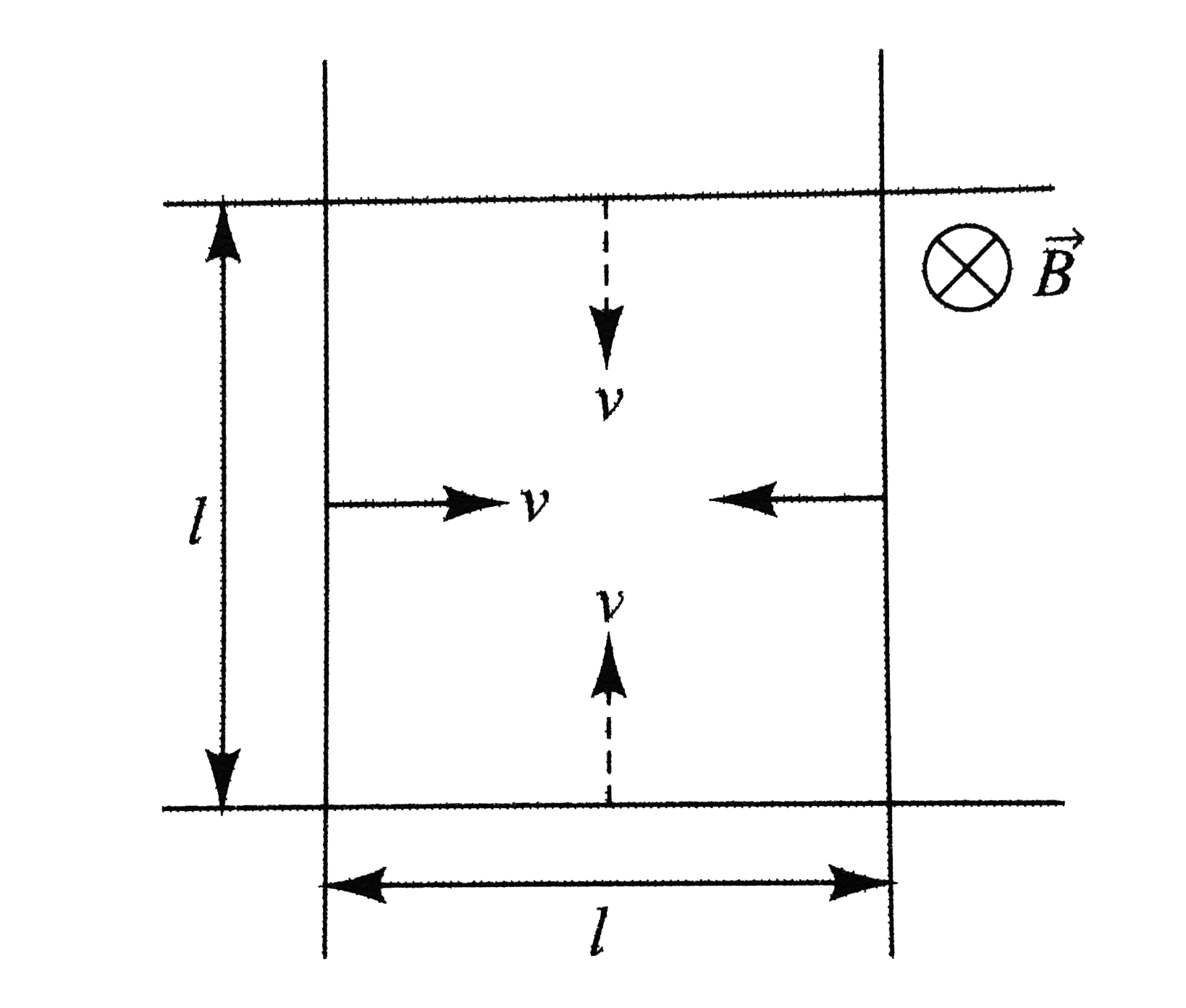 View Solution
View SolutionTwo parallel fixed conducting rails are l distance apart. They are connected by a conducting wire xy. A uniform magnetic field B is applied normal to its plane. Two other rods PQ and RT(RS = ST) are moved with a constant velocity v. Resistance/ length of these two rods are λ no other wire has resistance. Then :
 View Solution
View SolutionA conducting bar is slid at a constant velocity v along two conducting rods. The rods ar seprated by a distance l and connected across a resistor R. The entire apparatus is placed in an external magnetic field B directed into the page
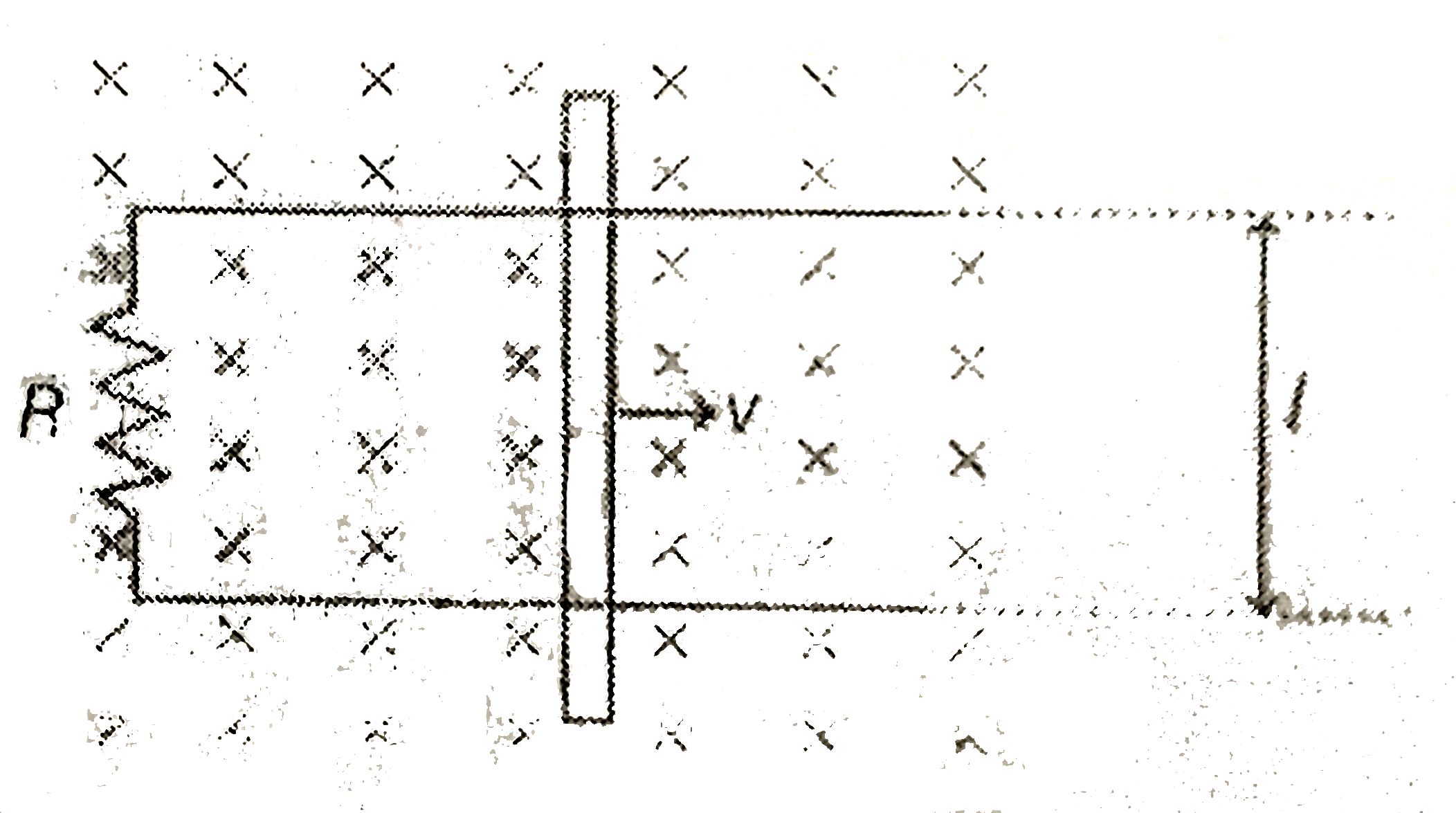
Which of the following represents the current i generated by the apparantus?View SolutionA conducting bar is slid at a constant velocity v along two conducting rods. The rods ar seprated by a distance l and connected across a resistor R. The entire apparatus is placed in an external magnetic field B directed into the page
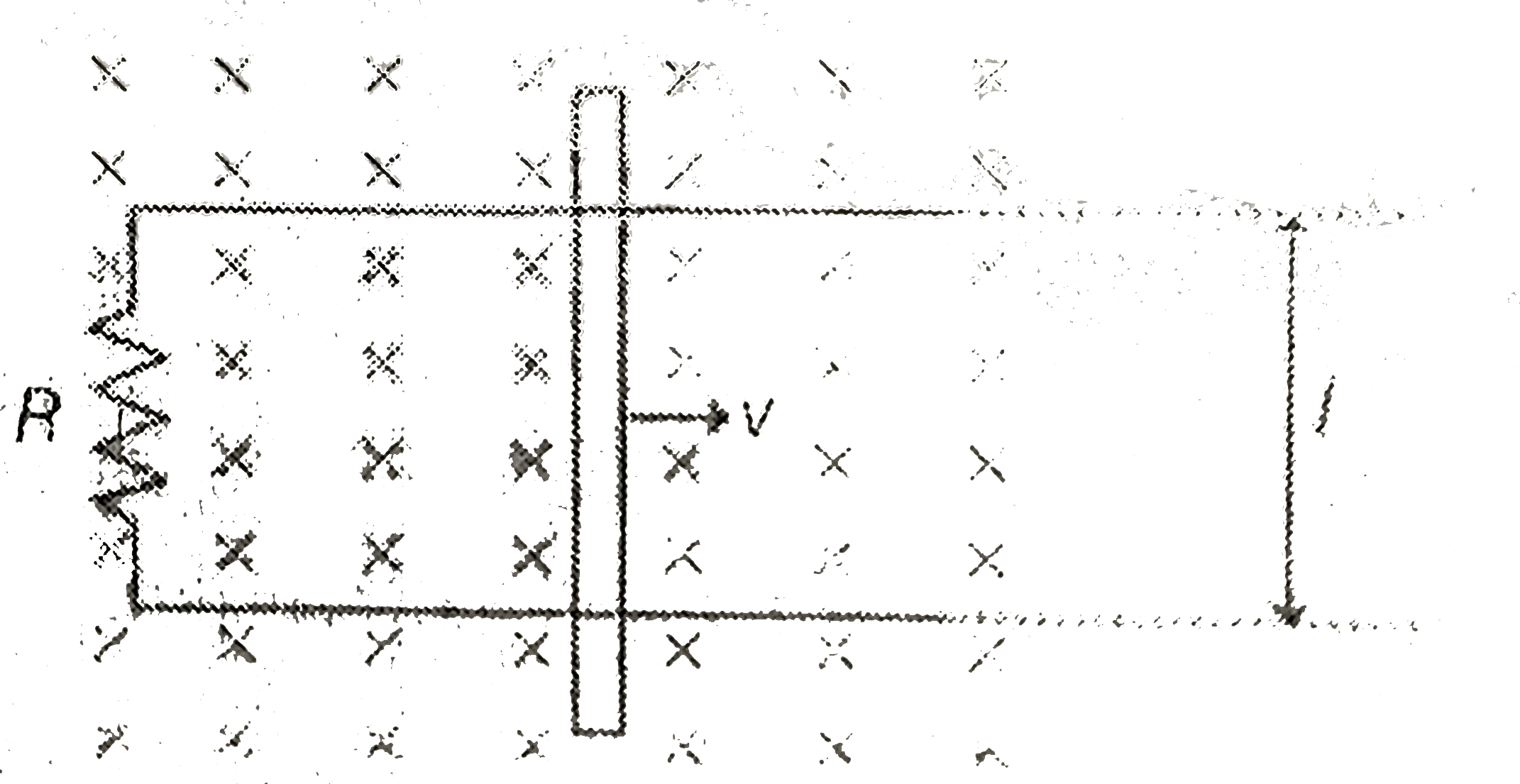
An increase in which of the following would NOT increase the current generated by the apparatus?View SolutionA square loop of side l being moved towards right at a constant speed v as shown in figure. The front edge enters the magnetic field B at t = 0. The width of field is 4l. Sketch induced emf versus time graph.
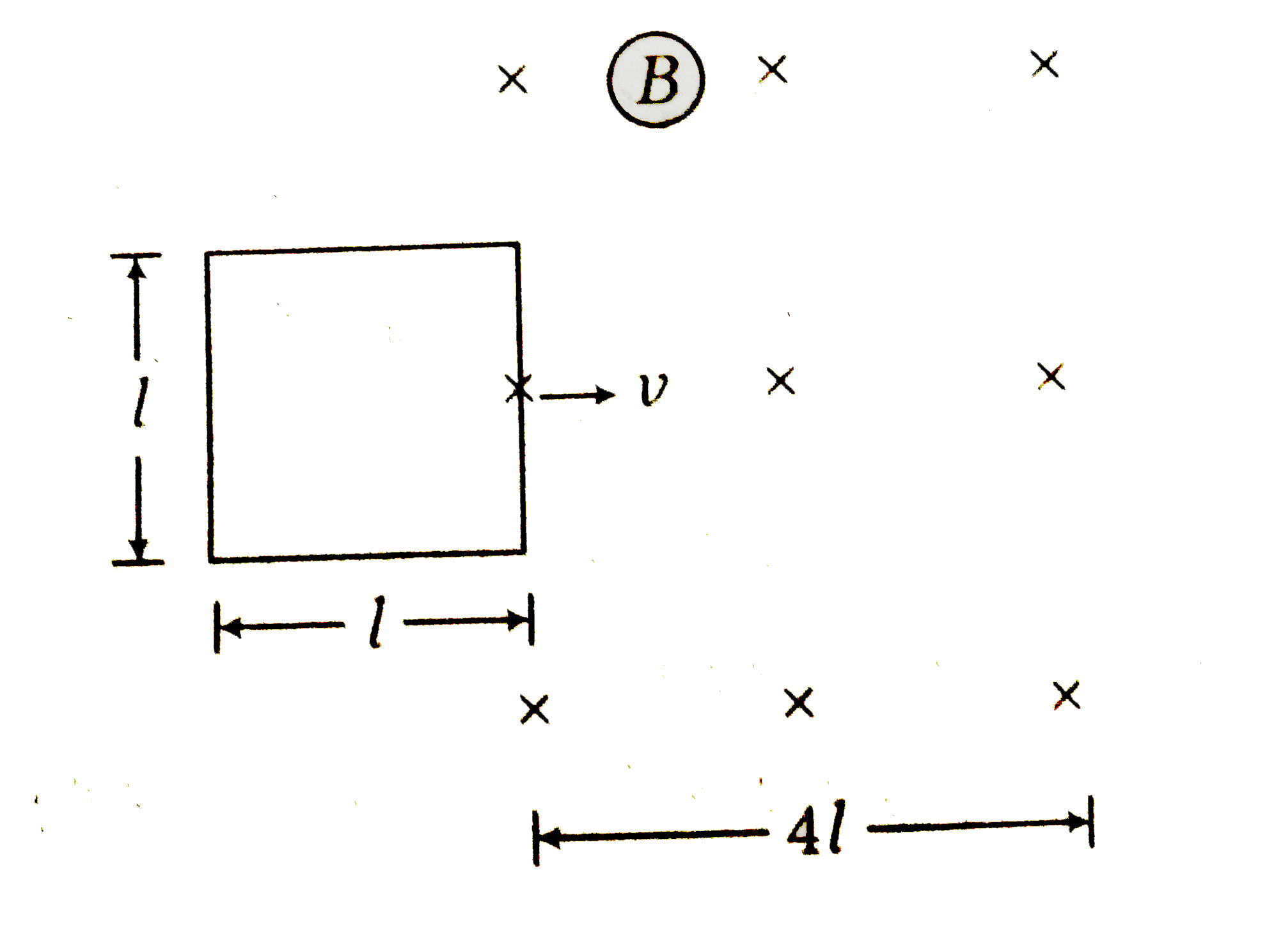 View Solution
View SolutionThere is a conducting rod of length 2L that lies along x-axis from x=−L to x=L. If rod moves with velocity (v=v0ˆi) In the magnetic field (→B=B0ˆk), then induced emf bbetween ends of rod is
View Solution

